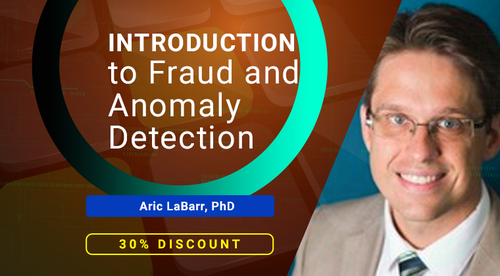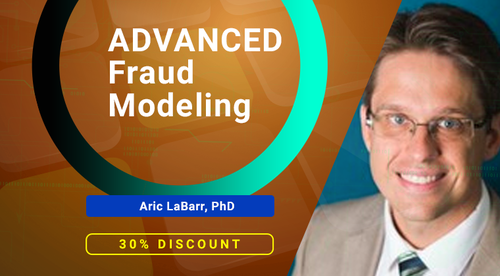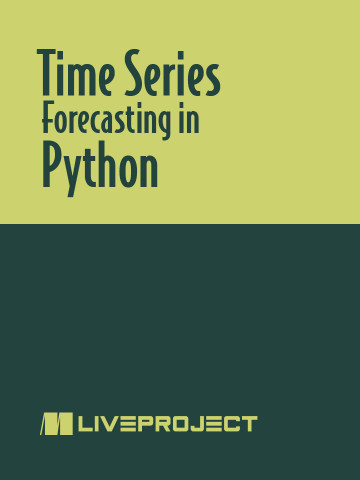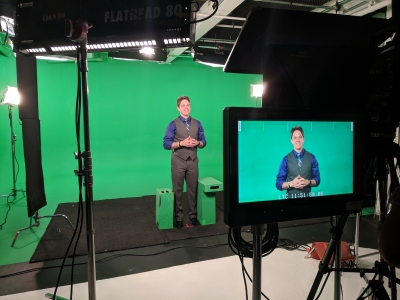Training
I love the ability to teach other individuals. Not all training has to happen in a university setting though. I have been blessed to have created courses and trainings in a variety of places in both time series and fraud analytics.
AI+ & Live Trainings
Through the Open Data Science Conference AI+ Training platform, I have developed and teach two courses on anomaly and fraud detection.

Introduction to Anomaly Detection and Fraud
Live Sessions (ODSC East 2023, Boston, 5/7 at 9:40)
This is part one in the series that defines the fruad problem as well as how we can use anomaly detection to help define a target where none previously existed. These anomaly detection techniques will cover concepts in probability, statistics, and machine learning.
On-Demand Sessions
The first course is an introduction to anomaly detection through the example of fraud. We cover topics in:
- What are anomalies and how does analytics help detect them?
- Data preparation
- Feature engineering
- Recency and frequency features
- Handling time
- Categorical feature engineering
- Probability and statistical approaches
- Benford's Law
- Z-scores and Robust Z-scores
- IQR rule and its adjustment
- Mahalanobis distances
- Machine learning approaches
- k-nearest neighbors
- Local outlier factor
- Isolation forests
- Classifier adjusted density estimation (CADE)
- One-class support vector machines (SVM's)

Advanced Fraud Modeling
Live Sessions (ODSC East 2023, Boston, 5/8 at 2:00)
This second part of the series jumps heavily into modeling. Once we have a target (see part 1), we now need to develop some model - both for detecting fraud and detecting non-fraud. We also discuss implementation and deployment.
On-Demand Sessions
The second course deals with more advanced fraud modeling concepts. We cover topics in:
- What is fraud and how does analytics help detect solve it
- Data preparation
- Feature engineering
- Fraud data with and without labels
- Sampling concerns
- Supervised Modeling
- Interpretable models (decision trees, logistic regression)
- Naive Bayes classifier
- Advanced models (random forest, gradient boosting)
- Model evaluation
- NOT-fraud model
- Implementation and deployment
- Anomalies revisited
- Interpretability of models
- Long-term fraud strategy
- Chance and loss models
Manning Publications
With the help of Manning Publications, I have developed a project based course on learning time series models in Python through the example of forecasting energy usage.
We cover topics in:
- Exploring time series data visually
- Linear regression
- Exponential smoothing models
- ARIMA models
- Interventions and holiday effects

Datacamp
Through Datacamp's online platform, I have developed a course in Forecasting Product Demand using R.
We cover topics in:
- Forecasting demand with time series
- Importing time series data
- Manipulating time series data
- R's auto.arima function
- Components of demand
- Price elasticity modeling
- Holiday and promotion effects
- Blending time series and linear regression
- Forecasting residuals
- Transfer function models
- Hierarchical forecasting
- Bottom-up modeling
- Top-down modeling
- Middle-out modeling
